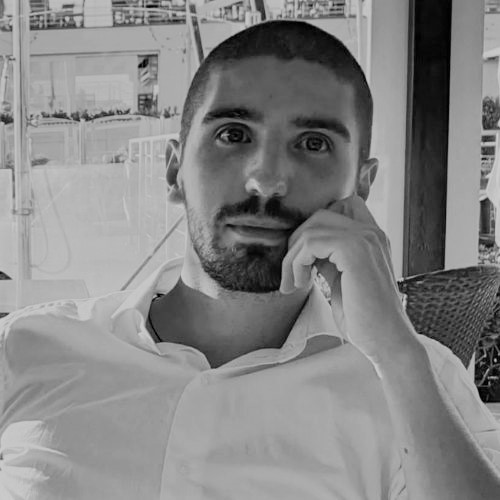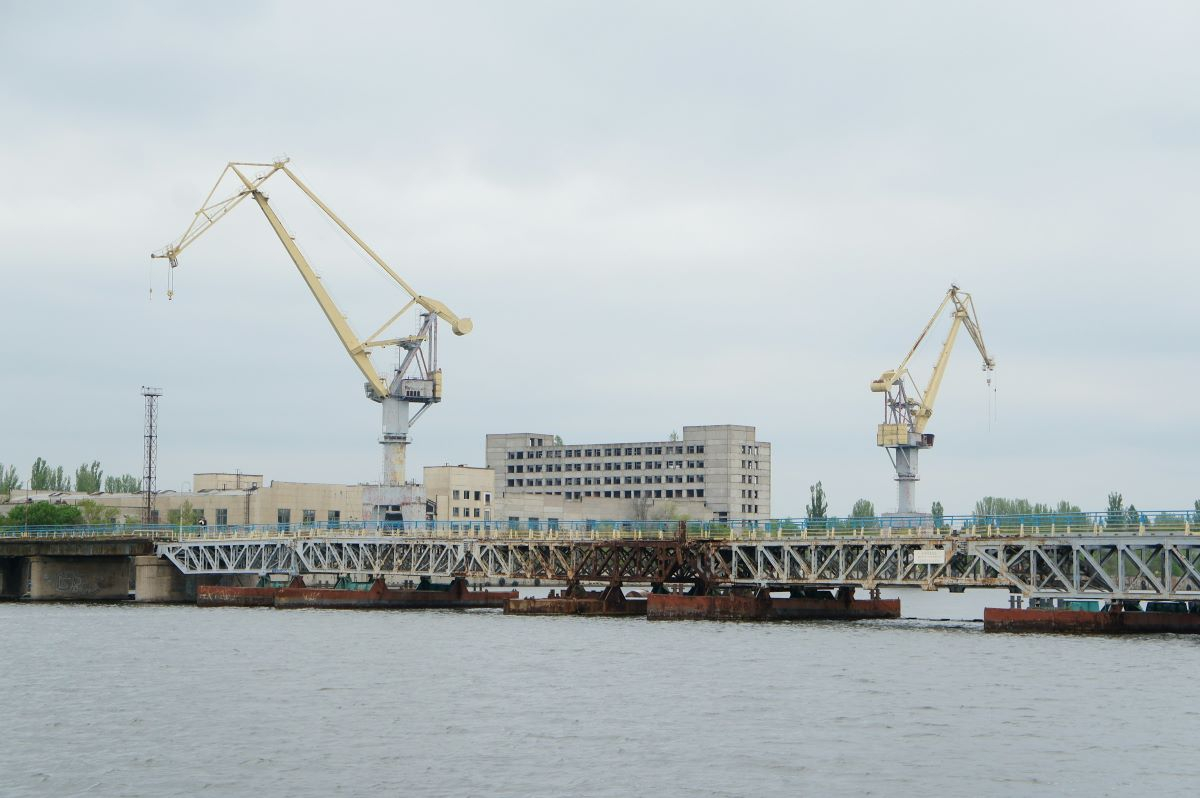From Stockholm – “Bridging Borders: Water for a Peaceful and Sustainable Future.” This is the theme of the 2024 edition of the World Water Week, which took place from 25 to 29 August in Stockholm, Sweden. Organised by the Stockholm International Water Institute since 1991, World Water Week is the leading conference on global water issues. This year, both in-person and online, over twelve thousand participants from the private sector, academia, and governments across more than 190 countries and territories are expected to attend. Among them, a few days after the 33rd anniversary of independence from the Soviet Union and the Russian attack on the Vyshgorod hydroelectric power plant on the Dnipro River near Kiev, there was a Ukrainian delegation. Why participate in World Water Week?
According to preliminary estimates from the Kyiv School of Economics (KSE), Russian attacks on civilian infrastructure have destroyed “more than 1,947 linear kilometres of water mains,” while “25 water treatment plants have been partially damaged or completely destroyed.” The same fate befell 182 pumping stations, mainly in Kharkiv, Luhansk, and Donetsk regions. Ukraine now faces a double challenge: responding to the humanitarian emergency by ensuring access to clean water and sanitation, while at the same time adopting strategies to restore and modernise the long-term water infrastructure by upgrading old, declining Soviet networks. But how?
Renewable Matter spoke with Oleksandr Sienkevych, Mayor of Mykolaiv, Ukraine, about this. With a population of more than 400,000 before the Russian invasion, in the first weeks of the conflict in 2022, Mykolaiv suffered the destruction of the city's main supply pipeline.
What happened to the fresh water supply in Mykolaiv, and how has the situation evolved since the initial attack in April 2022?
The Russians destroyed the pipelines that brought fresh water to the city of Mykolaiv from the Dnipro River on 12 April, 2022. These pipelines were 73 km long and pumped 160,000 m³ of water daily. After the occupation of Kherson [60 km east, editor’s note] ended in November 2022, we were able to repair them. However, in June 2023, they destroyed the Kakhovka dam, causing a flood that damaged our intake pumps and electronics. They also attacked buildings on the left riverbank with artillery. This means we are currently unable to bring fresh water from the Dnipro River because, as soon as we attempt to reach the right bank, they attack us with artillery and grenades.
Does the Ukrainian government believe this attack was very deliberate? How did you first respond to the destruction of the pipelines?
Let’s say the Russians destroyed these pipes. We realised this within a day because the pressure dropped. In just one month, we built another pipeline to bring water from the South Buh River, where our city is located. We still use these pipelines to provide people with technical water because we couldn’t afford to be without water. If the wastewater pipelines had dried out, they could have been damaged or blocked. So, we needed at least technical water for toilets, showers, washing clothes, and everything else. By the way, the water had a higher salt content. This was a lifesaving response, and prioritising this right after the attacks was part of our emergency plan.
And how did you manage to provide drinking water to the city after the attacks?
At that time, we had to ensure people had access to drinking water. We drilled boreholes around the city and, in the very beginning, started bringing in water tanks and trucks to distribute fresh water. Now we have more than 260 water distribution points, which use osmosis cleaning systems to purify the water to drinking standards. People can get as much as they need for free, without any limitations. These wells and boreholes, along with water from the pipelines, are part of our efforts. Together with Denmark, Japan, and other partners, we have installed these systems. They also help us maintain them, including changing filters and membranes. However, this is a temporary solution.
When it comes to water supply, in Ukraine there is now a clear humanitarian action-development nexus. What long-term solutions are you implementing to secure water for the city?
We decided to build a new pipeline towards the Southern Buh River, which our city is located on, but further upstream. The water quality there is close to drinking standards so we can treat it to a potable level. This will allow us to bring fresh water back to the city in a centralised manner. In addition, we are planning to rebuild an old water reservoir. During Soviet times, we had a reservoir, but we stopped using it because rising underground water levels caused many houses to flood. Together with our European partners, we are reviewing the process of rebuilding this reservoir, making it waterproof, deeper, and larger, up to 3 million cubic meters. It's still in the design phase.
Many issues have arisen due to using salty water from the river. How are you addressing them?
We had no choice but to ensure people had water, so we started using the most accessible source, our river. However, the water is salty, and our pipelines are mostly made of black metal, specifically iron. The salt has caused significant damage, leading to many leaks. Given that many of these pipelines haven't been updated in 60 years, rust has severely corroded them. Currently, we have several projects in progress, including one where we have decided to replace all the pipelines in a district with plastic ones.
How are you planning to move from emergency response to long-term recovery and mitigate the risk of future destruction? Are you building following the build-back better principles?
First, I do not think we need to "build back better." We need to build forward. We want to use the best knowledge, techniques, and approaches for water treatment, not just to renovate what we have, but to build something entirely new. That is why I say, "build forward." Sometimes, renovating can cost more than building new. In our case, we are collaborating with the Mykolaiv Water Hub, a non-governmental organisation based in Berlin. We are exploring various technologies, nurturing talent, and developing competencies, like the girls in STEM programs through a coaching initiative in the city. Last year, in 2023, we began the process of creating an innovation water cantre in Mykolaiv, in collaboration with our partners from GIZ and the City of Hannover. It’s like a startup, a place where we will collect all the data, technologies, and best practices to develop human capital.
Specifically, regarding water infrastructure, what steps are you taking to ensure long-term resilience in the face of ongoing threats?
We understand that the war will eventually end, but our neighbour will not disappear. So, we will always have to deal with them. What we are doing now is learning lessons from the war and trying to build a new, more resilient system, one that’s modular. In case of a rocket attack, we will be able to run at least part of the system, so it continues functioning instead of being entirely destroyed.
From your speech at World Water Week and your words in this moment, as I understand it, “building forward” means developing in alignment with European standards. With the EU accession negotiations officially commencing on 25 June, 2024, it is crucial to update procedures to conform with EU policies. A significant aspect of this process involves ensuring transparency in spending.
First, we have not used any funds directly from our partners. All procurement procedures were handled by them. Equipment, pipelines, and everything else were purchased according to their costs and procedures. We are also cooperating with the European Union Anti-Corruption Initiative to change procedures. We are piloting many projects in Mykolaiv, starting with a monitoring website and an International Aid Monitor website that reflects all the help we received. This way, our partners and the public can see everything transparently. We have also changed procurement procedures with Ernst and Young and are conducting integrity assessments in the three largest budget consumers: the water supply, heating supply, and transport companies of the city. By the end of the year, we plan to establish advisory boards for these companies, with Deloitte's help. We want to be transparent and reliable for our partners.
Finally, a quick question on environmental degradation. What pollution risks are you facing, and how are you addressing them?
We had an attack on an oil storage. Some oil has leaked into the river, creating pollution risks. We are working to prevent this and protect areas like port zones. We have already taken many steps in this direction, but we can't predict or prepare for everything Russia might do. The only way to stop this pollution is to stop Russia from attacking our critical infrastructure.
This article is also available in Italian / Questo articolo è disponibile anche in Italiano
Cover image: Mykolaiv, Ukraine, Tina Hartung, Unsplash



